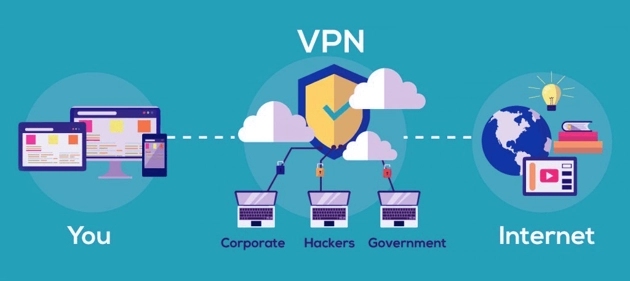Why do I need a VPN?

In the modern world, everything is digitalized, digital hygiene is important, so everyone should have their own VPN so that data is not stolen and opinions cannot be manipulated (using search results) and restrict access to information.
Let's see what a VPN is for. Maybe this excitement — temporary, and not worth a damn?
Initially, the technology was developed to provide secure and confidential remote work.
Imagine: a bank employee went to work remotely, and now he needs to access work information from home. How to do it cost-effectively and safely?
To solve this problem, they came up with a virtual private network.
- Computers are combined into a single network, the work between which is based on certain principles.
- The network is not tied to physical communication channels, that is, there is no need to manually pull the wires, – this greatly facilitates communication and saves money. You can connect to the virtual network from anywhere in the world.
- For security purposes, data within the network is encrypted. Anyone cannot connect to the network — it simply will not be allowed without the necessary access. That is why the word “private” appears in the name, that is, the network is not for everyone.
So employees have access to shared files without the urgent need to be near the server and without fear of leaking information.
However, the possibilities of such a network are of interest not only to large companies, but also to ordinary Internet users.
VPN needed:
- to combine different parts of the same company
Management may be located in Moscow, accountants may work from Tver, and – throughout Russia;
- for remote work
Employees can work anywhere, while being in the same system and accessing all information;
- to isolate information from certain departments within the company
If someone needs private access;
- for partial anonymity
Some VPNs do not save browser history, hide location, and so on;
- to bypass locks
If resources are prohibited in the territory of one country, you can connect via VPN to a server from another country where access is not blocked, and use the desired Internet resource. Geolocation data is not transmitted from the device, but from a VPN server, which may be located in another country. VPN "disguises" travel on the Internet for both the owner of the blocked site and the provider. The provider does not see the connection to the forbidden resource, and its owner does not understand that the user came from a country where the site is blocked and opens access.;
- for a secure connection
It's no secret that connecting to public Wi-Fi is not secure, but connecting to a VPN protects data. Connecting via VPN allows you to reduce the likelihood of data leakage, such as logins or passwords, when connecting through public wifi points. The transmitted information will be available only if the encryption key is available. You can also visit sites without fear that they will find out about the visit.;
- Increasing Internet speed on popular resources
Providers can set limits on resources like VKontakte or YouTube. Therefore, the data transfer rate is reduced. VPN can help solve the problem.